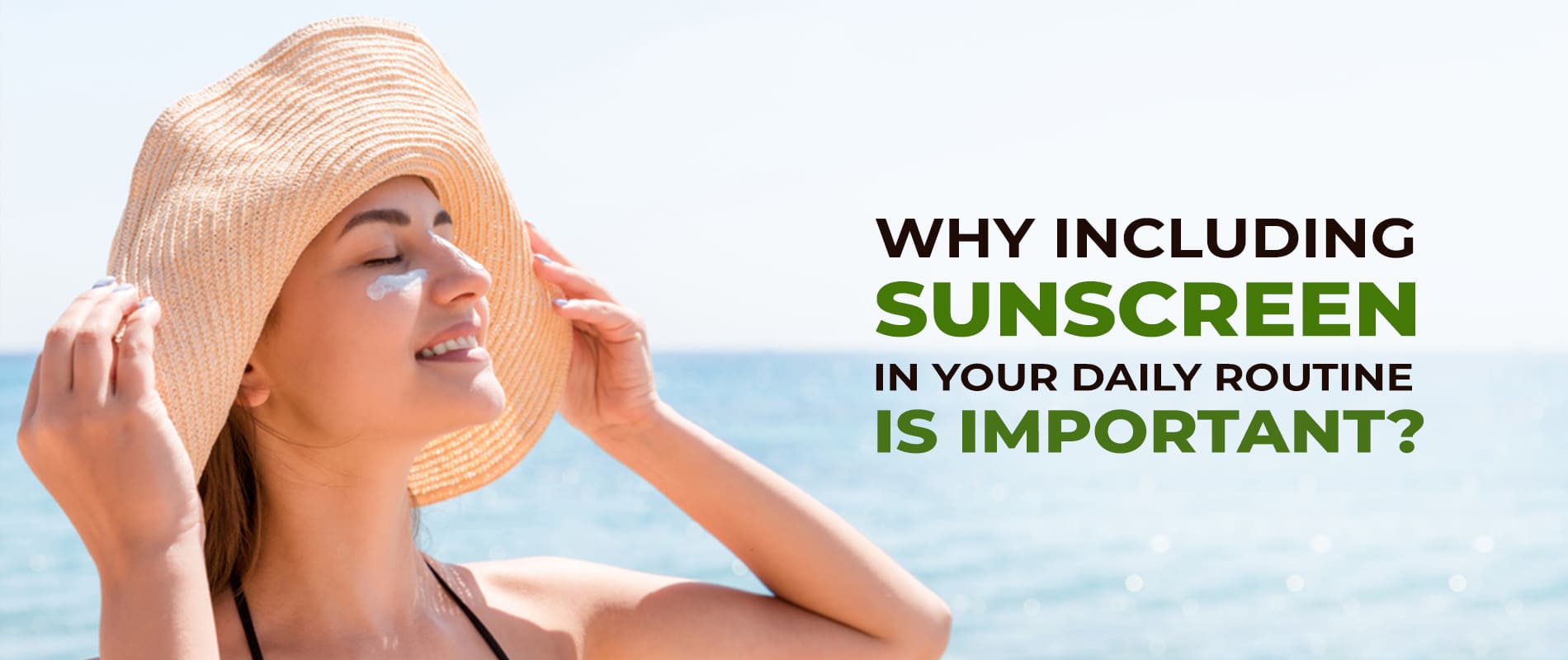Applying sunscreen is one of the finest — and simplest — strategies to protect the appearance and health of your skin at any age. Sunscreen, when used routinely, can help prevent sunburn, skin cancer, and premature aging.
The sun protection factor (SPF) of a sunscreen represents its capacity to protect against a specific percentage of ultraviolet (UV) light known as UVB. Sunburns and skin cancer are caused by UVB radiation. There are two other portions of UV light: UVC rays (which do not penetrate through the earth's atmosphere) and UVA rays (which are also responsible for skin cancer as well as skin aging). A broad-spectrum sunscreen will shield you from both UVB and UVA radiation.
How much SPF is appropriate for me?
Choose a sunscreen with an SPF of at least 30 for daily use. If you spend time outside, consider sunscreen with an SPF of 50 or higher. In truth, most people do not apply as much sunscreen as they should which causes sunburn. Sunburn leads skin to look older, wrinkled, and dry. So, choose a sunscreen with broad spectrum SPF.
How much sunscreen do I require?
Apply two finger rule to apply the sunscreen. The two-finger rule involves applying two lines of sunscreen directly onto your index and middle fingers. First, starting from the base of the fingers which connects to the palm, until the very tips. Then you use this to apply to your face and neck. You can be certain that you are shielding your skin with this amount.
Should sunscreen be applied before or after other products?
It doesn't matter what order you apply your skin care products as long as the sunscreen is at least SPF 30, water-resistant, and broad-spectrum. Some people prefer to work with bare skin – before adding makeup or moisturiser. Determine what works best for your routine.
See your dermatologist if you have any questions regarding layering specific products.
The single most significant adjustment you can make to your daily routine to protect your skin is to use sunscreen every morning and throughout the day.
Why Sunscreen Application is Important?
Reduce the Risk of Sunburn
Sunburn can occur from spending extended periods of time outside without sunscreen, as well as from utilising tanning beds or booths. Sunburns can regularly cause skin cancer, premature ageing, and other skin problems. If you get a severe sunburn with blisters, contact your local dermatologist for assistance. They may analyse your burn and provide treatments to relieve discomfort and reduce scarring. If treated early enough, oral or topical steroids can help avoid some of the damage caused by sunburns.
Prevent the Signs of Aging
Sun exposure with little to no protection can cause elastin, collagen, and skin cell damage. This can cause accelerated ageing symptoms such as discolouration, wrinkles, fine lines, and a leathery appearance. Premature ageing, also known as photoaging, is widespread in people who spend time in the sun without sunscreen, particularly those in their twenties and thirties. Fortunately, we may avoid these skin problems by using sunscreen every day.
Prevent Skin Discoloration
Living with skin discoloration can be challenging, particularly if it develops later in life. These discoloured regions, which are often tan to brown in hue, are referred to as "sun spots" or "liver spots." Both men and women are susceptible to them, and they frequently appear on the face, head, hands, and arms. Regularly reapplying sunscreen throughout the day can aid in preventing the development of these spots on your skin.
Reduce Inflammation
When we expose our skin to UV radiation, we can experience uncomfortable redness and irritation. This can be especially difficult for people who suffer from skin conditions like psoriasis or rosacea. Applying sunscreen every day can help avoid sunburn from dangerous rays. If you have sensitive skin and are prone to redness, seek sunscreen containing soothing chemicals like zinc oxide or titanium dioxide. Spray-on sunscreens should also be avoided because they can contain harsh ingredients, such as alcohol, which can dry out the skin. If you have any questions about your skin or need help selecting a product, contact your local board-certified dermatologist.
Tips for Picking a Sunscreen
With so many alternatives available, selecting a sunscreen cream can be difficult. While selecting goods, one of the most important factors to consider is the amount of SPF. An SPF of 30 or greater will ensure that your skin is adequately protected, especially on overcast days. Always reapply sunscreen after swimming or using a towel, and choose a product that offers "wide spectrum" protection.





